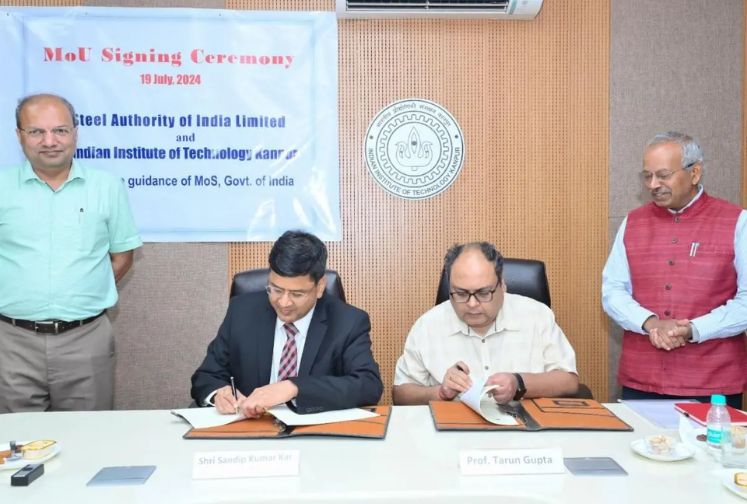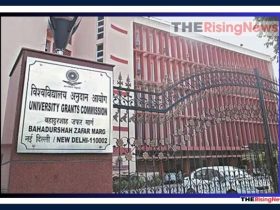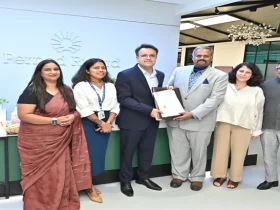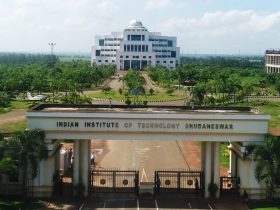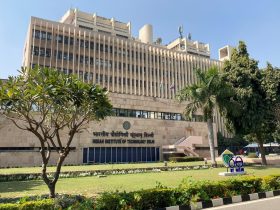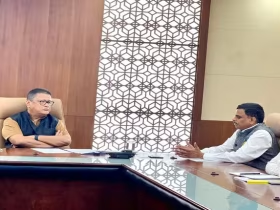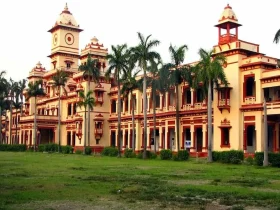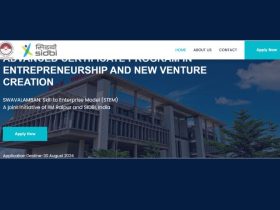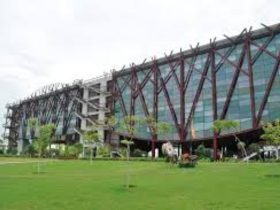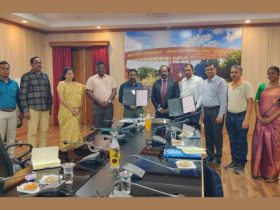NEW DELHI, July 26, 2024 – In a landmark move set to transform India’s steel sector, the Indian Institute of Technology Kanpur (IIT Kanpur) and the Steel Authority of India Limited (SAIL) have joined forces in a strategic collaboration. This IIT Kanpur SAIL collaboration, formalized through a Memorandum of Understanding (MoU) signed in New Delhi, aims to tackle pressing technological challenges and drive innovation in steel production.
IIT Kanpur SAIL Collaboration: A Strategic Alliance for Steel Innovation
- IIT Kanpur and Steel Authority of India Limited (SAIL)
- Strategic research partnership to address technological challenges in steel manufacturing
- July 26, 2024, New Delhi, India
- To innovate in steel decarbonization, hydrogen utilization, and waste management
- Through joint R&D, formation of a Section 8 company, and leveraging digital technologies
The MoU was signed by Tarun Gupta, Dean of R&D at IIT Kanpur, and Sandip Kumar Kar, Executive Director of SAIL’s R&D Center for Iron and Steel (RDCIS). The ceremony was attended by high-profile figures including Nagendra Nath Sinha, Secretary of the Ministry of Steel, and Amarendu Prakash, Chairman of SAIL, underscoring the significance of this IIT Kanpur SAIL collaboration.
Driving Technological Advancements in Steel Manufacturing
Focus Areas for Research and Development
This partnership between academia and industry will focus on several critical areas:
- Steel Decarbonization: Developing innovative methods to reduce carbon emissions in steel production.
- Hydrogen Use in Direct Reduced Iron (DRI) Production: Exploring cleaner alternatives in DRI processes.
- Waste Utilization: Improving management and repurposing of industrial waste.
- Mineral Beneficiation of Lean Ore: Enhancing processes for lean ore beneficiation.
- Bulk Materials Movement: Optimizing transportation of materials in steel plants.
Leveraging Advanced Laboratory Facilities
Nagendra Nath Sinha emphasized the importance of utilizing advanced laboratory facilities at IIT Kanpur, RDCIS, and NMDC to drive these initiatives forward. This approach ensures that the IIT Kanpur SAIL collaboration remains at the cutting edge of steel technology research and development.
Digital Transformation in Steel Production
Harnessing IIT Kanpur’s Expertise in Modeling and Simulation
A key aspect of the IIT Kanpur SAIL collaboration is the focus on digital technologies. IIT Kanpur’s expertise in modeling and simulation will be harnessed to address complex challenges in steel manufacturing. This digital approach is expected to significantly accelerate innovation and problem-solving in the industry.
Strengthening Industry-Academia Ties
Formation of a Section 8 Company for Enhanced Collaboration
To further strengthen the partnership, a Section 8 company will be formed with support from the Ministry of Steel. This entity will serve as a bridge between academia and industry, fostering technological innovation and enhancing collaboration in steel research.
Impact on India’s Steel Sector
SAIL’s Commitment to Implementation and Innovation
Amarendu Prakash, Chairman of SAIL, expressed confidence in the IIT Kanpur SAIL collaboration’s potential to guide the industry towards future technologies. SAIL has committed to being the first customer for products developed by start-ups incubated at IIT Kanpur, providing a direct pathway from research to implementation.
Interdisciplinary Approach to Complex Challenges
Tarun Gupta of IIT Kanpur stressed the importance of an interdisciplinary approach to addressing complex plant issues. The IIT Kanpur SAIL collaboration will leverage diverse expertise from various departments at IIT Kanpur, ensuring comprehensive solutions to industry challenges.
Bridging Academic Research with Industrial Needs
Bridging Academia and Industry
To ensure that academic research aligns closely with industry needs, Sandip Kumar Kar has invited IIT Kanpur professors to visit RDCIS and SAIL plants. This hands-on approach will provide researchers with valuable insights into real-world steel manufacturing environments.
Shaping the Future of Indian Steel Industry
Potential Global Leadership in Sustainable Steel Manufacturing Conclusion: A New Era for Indian Steel
The IIT Kanpur SAIL collaboration marks a significant step towards technological advancement and sustainability in India’s steel industry. By combining academic expertise with industrial knowledge, this partnership is poised to drive innovation, improve efficiency, and promote environmentally friendly practices in steel production.
As this collaboration unfolds, it has the potential to position India as a global leader in steel technology and sustainable manufacturing. The impact of this partnership is expected to extend beyond the steel sector, contributing to India’s broader goals of industrial growth and environmental sustainability.
For more information on the IIT Kanpur SAIL collaboration and its progress, interested parties are encouraged to follow updates on the official websites of IIT Kanpur and SAIL.
More News:
- IIT Roorkee 24th Convocation Celebrates 2,513 Graduates with NASSCOM President Debjani Ghosh
- Presidency University Fee Hike Protest: SFI-Led Indefinite Sit-In at College Street Campus Demands Revocation for Freshers
- Delhi University Value Addition Courses (VAC): New Guidelines Aim to Enhance Student Learning Experience
- Delhi University Fee Hike: First-Year UG, PG, PhD, Foreign Students’ Fees Raised for 2024-2025 Session

